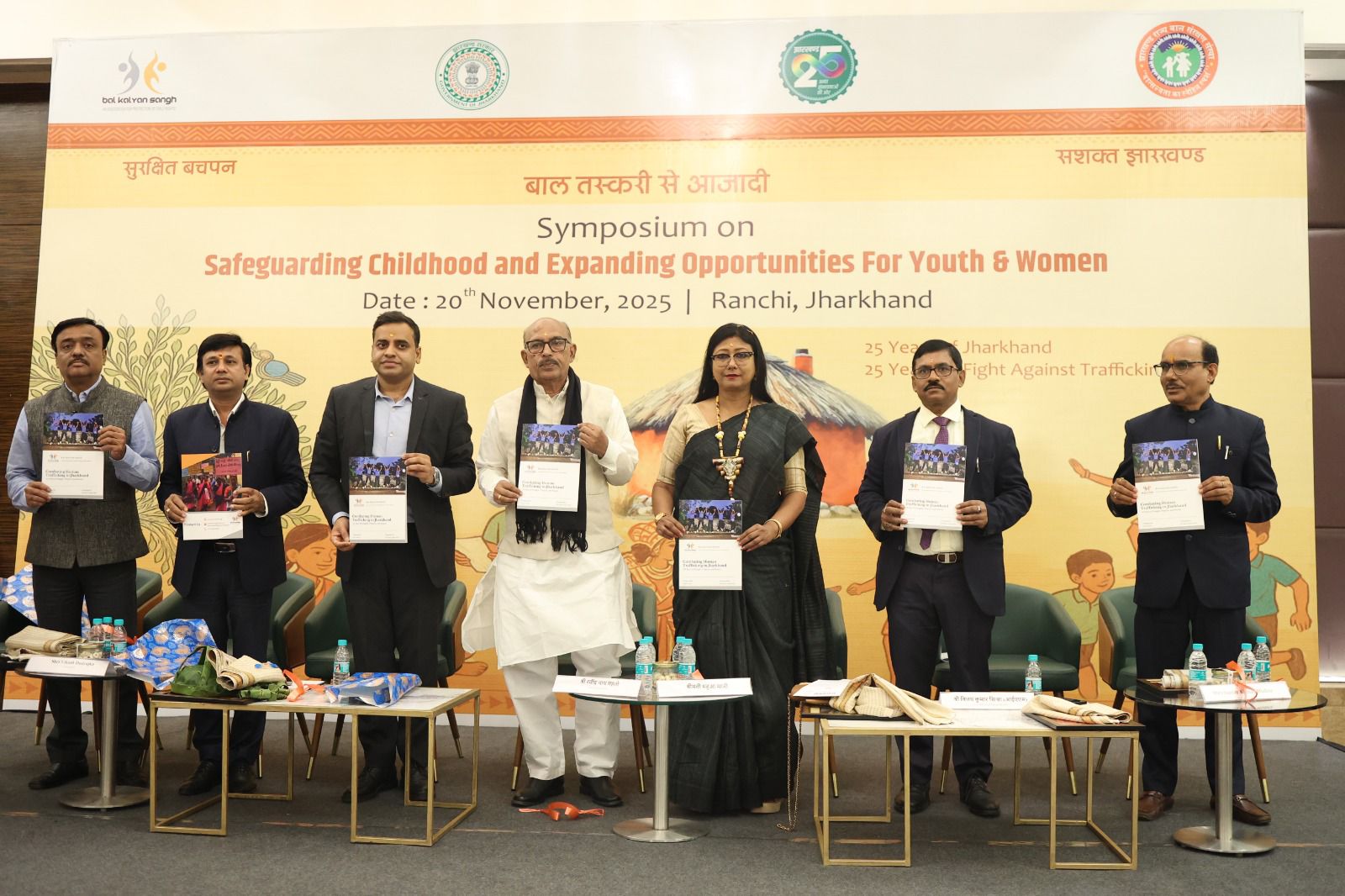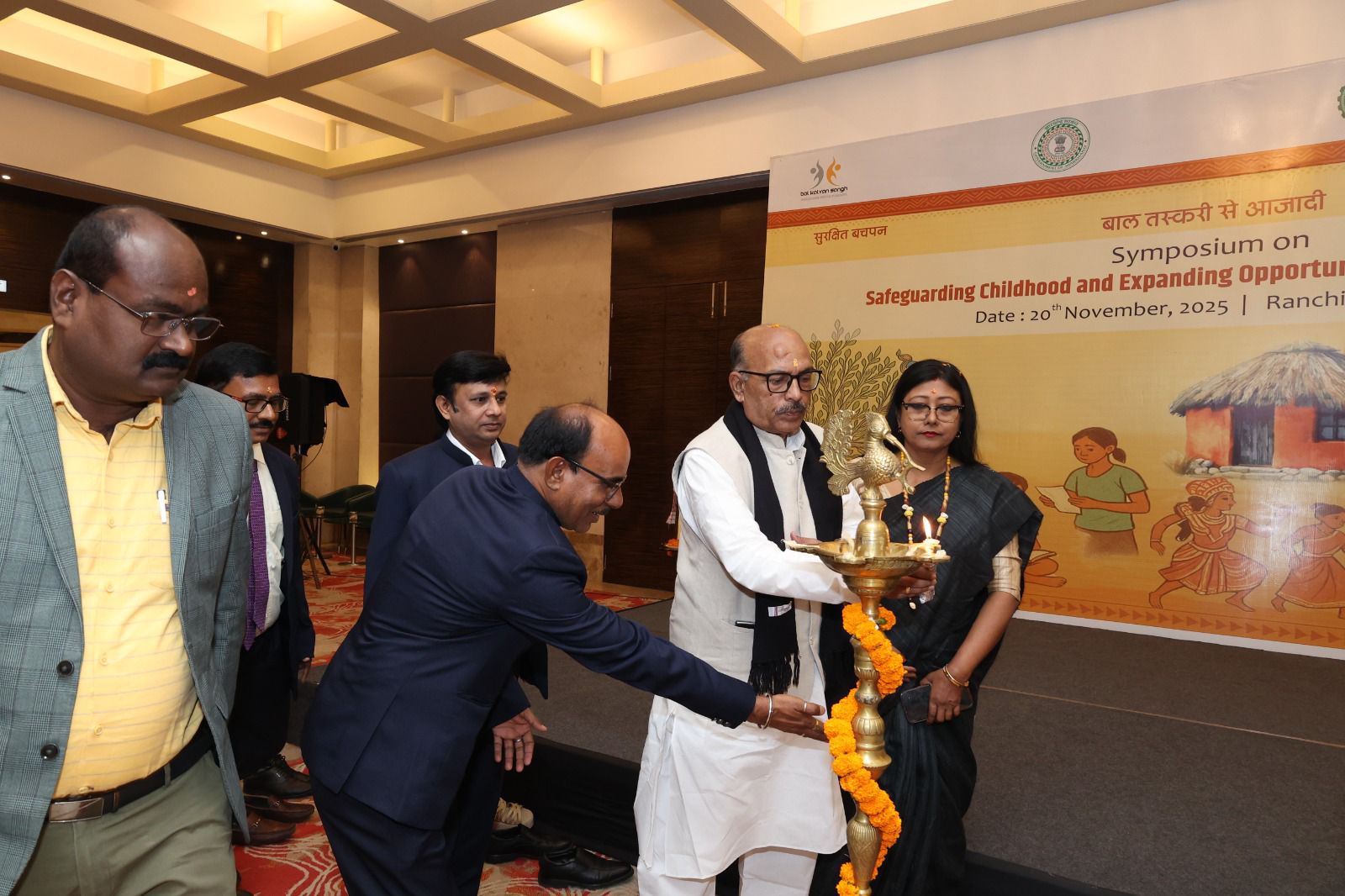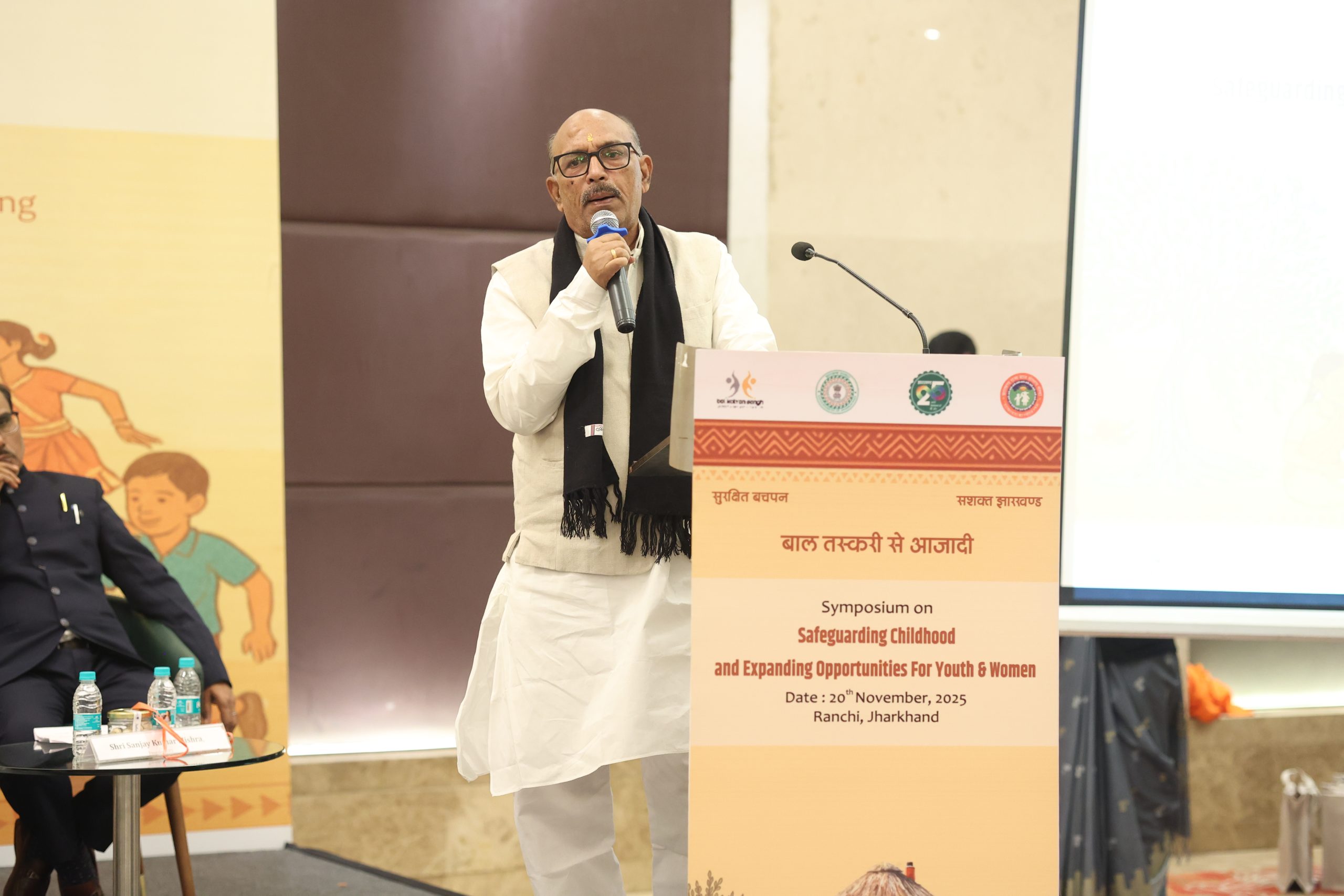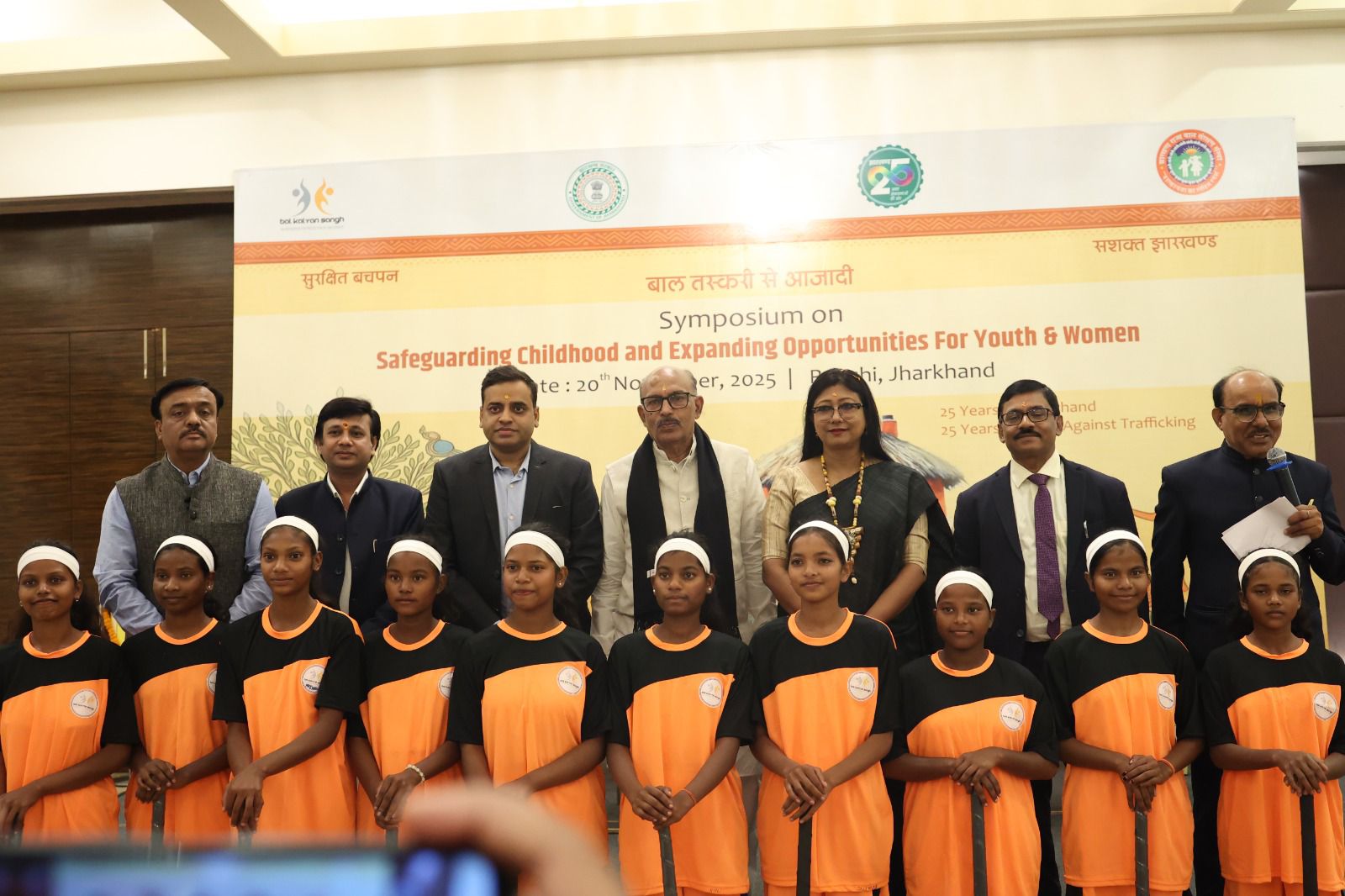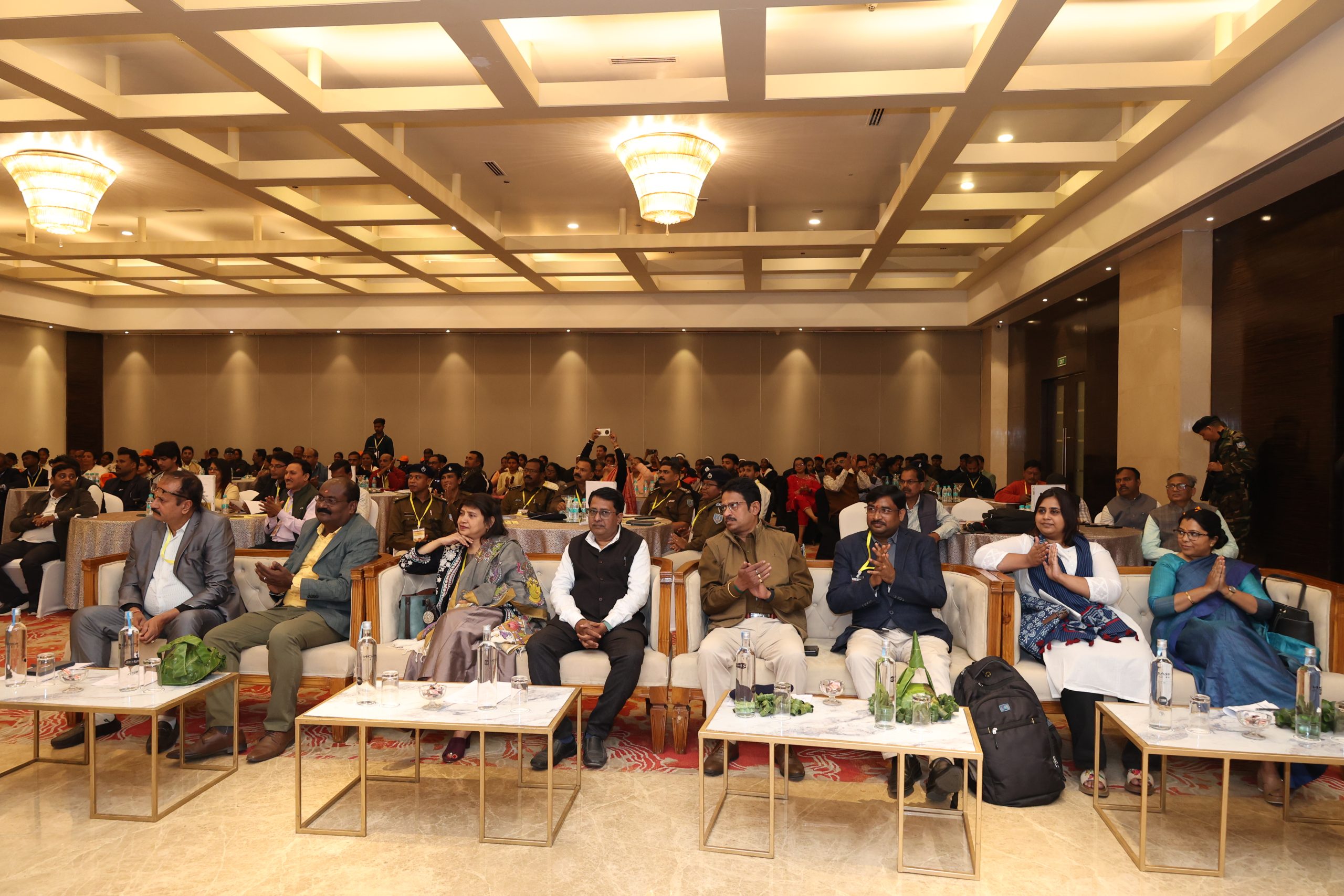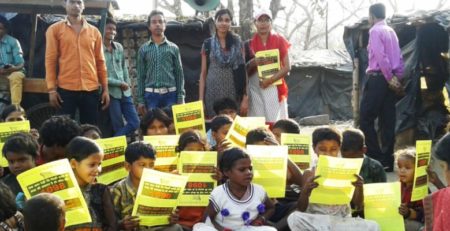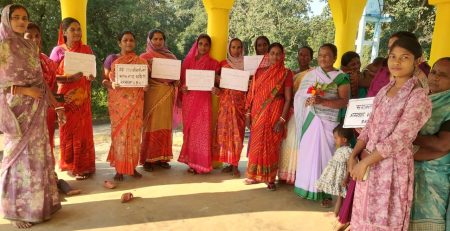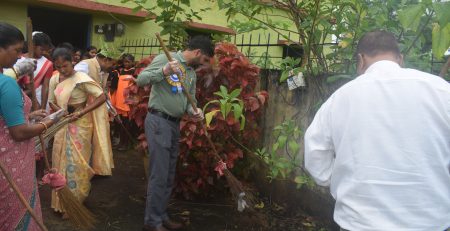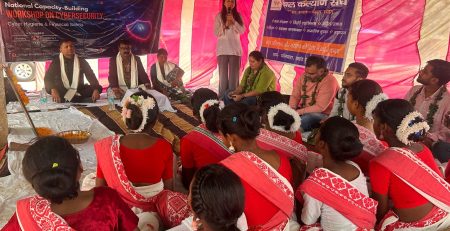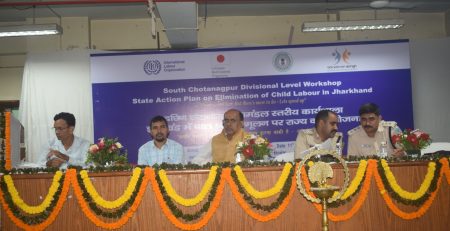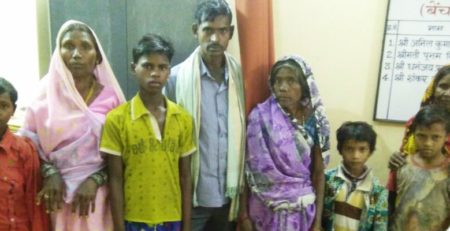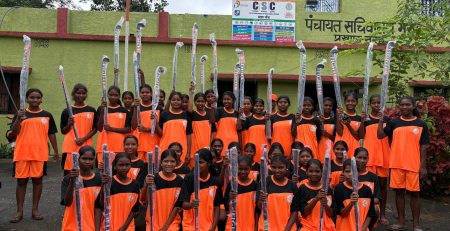Building Safety, Dignity, and Opportunity: Highlights from the State-Level Symposium on Childhood, Youth & Women
This World Children’s Day, Bal Kalyan Sangh joined hands with JSCPS, the Department of Women and Child Development and Social Welfare (WCD&SS), the Labour Department, and CID to organise a state-level symposium in Ranchi.
The theme was “Safeguarding Childhood and Expanding Opportunities for Youth and Women.”
The programme brought together government officials, experts, child protection teams, civil society organisations, and most importantly, child champions from Jharkhand, West Bengal and Bihar, who participated as panellists. Their participation ensured that conversations about children included the perspectives of children.
Why the Discussion Mattered
Jharkhand continues to face challenges like child trafficking, unsafe migration, child domestic labour, and exploitation in unregulated domestic work. The symposium became a platform to discuss solutions that are practical, rights-based, and community-driven.
Key Messages from the Speakers
Hon’ble Speaker Shri Ravindra Kumar Mahato
He spoke about how many children from vulnerable communities still fall into the hands of traffickers and unsafe placement agencies.
He emphasised strengthening families through government schemes like:
- Kishori Bai Samriddhi Yojana
- Maiyan Samman Yojana
- Guruji Credit Card Scheme
These schemes, he said, reduce vulnerability by giving families more stability and options.
He also appreciated the child champions present and announced a meaningful initiative:
Children from Khunti’s Bal Manch will get an opportunity to act as Speaker of the Jharkhand Legislative Assembly for a day—an experience to help them understand leadership and democratic processes.
Rajya Sabha MP Smt. Mahua Maji
She highlighted the progress Jharkhand has made in recent years:
-
Compensation for trafficking survivors
-
Reintegration of vulnerable girls into schools like KGBVs and Schools of Excellence
-
Stronger action against child trafficking and child labour
She also spoke about the proposed Jharkhand Private Placement Agencies and Domestic Workers (Regulation) Bill 2025, explaining how it can bring safety, regulated working hours, proper monitoring of placement agencies, and dignity to lakhs of domestic workers in the state, many of whom are women and adolescent girls.
Shri Mukesh Kumar, IAS, Secretary, Planning & Development
He reminded everyone that child protection cannot rely on institutions alone.
Many cases of child domestic labour still go unnoticed in urban homes.
His message was clear: community vigilance, awareness, and timely reporting can prevent harm before it happens.
Shri Bijay Kumar Sinha, IAS, Director, Mission Vatsalya
He shared how systems like CWCs, JJBs, DCPUs, and the 1098 Child Helpline are being strengthened.
He also stressed the importance of family-based care and long-term rehabilitation, not only rescue.
Shri Sanjay Mishra, Founder, Bal Kalyan Sangh
He spoke about BKS’s work in policy development and ground-level awareness.
Some of the major efforts he highlighted were:
-
A Five-Year Action Plan with the Labour Department to eliminate child labour
-
Ongoing work on the Domestic Workers Bill 2025
-
Strengthening the monitoring of placement agencies
-
Taking Mission Vatsalya awareness to villages and panchayats
His focus was on creating sustainable systems so children and women don’t fall into exploitation again.
The Role of Child Champions
One of the strongest aspects of the symposium was the active participation of child champions from Khunti.
They shared their perspectives, questions, and experiences, reminding everyone that policies and systems must be grounded in the realities children face every day.
Their presence shifted the conversation from “what we think children need” to “what children say they need.”
Collective Action Forward
The symposium saw participation from CWC members, DCPOs, AHTUs, Railway Police, Labour officials, Mission Vatsalya teams, and civil society organisations from several states nearly 200 participants in total.
The discussions made one thing clear:
Jharkhand is moving towards stronger laws, better protection, and more opportunities—but progress will depend on consistent collaboration between government, communities, and organisations.
Bal Kalyan Sangh will continue working with partners to ensure that children grow up safe, families remain empowered, and women working in domestic labour receive the dignity and protection they deserve.

